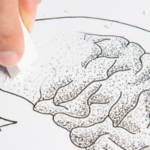What Causes Long Term Memory Loss
Going to the doctor and asking what’s causing your long-term memory loss can be very scary. But the good news is that there are many potential causes, and some of them are completely benign! Here are some of the most common causes of long term memory loss, as well as ways to prevent or treat them.

Brain Health Conditions
Researchers have identified a number of different conditions that can lead to long-term memory loss. Examples include brain lesions, Alzheimer’s disease, depression, vitamin deficiencies and even sleep deprivation.
In general, you may experience a variety of symptoms including: confusion, disorientation, difficulty retrieving memories and forgetting new information. If you or a loved one are experiencing these issues on a more chronic basis it’s worth checking in with your doctor to make sure nothing is seriously wrong.
While there isn’t always something that can be done about long-term memory loss caused by brain health issues such as Parkinson’s disease or dementia; it might help improve your condition if you seek out support groups and stay involved in physical activity or mental stimulation through education and reading for example.
Alzheimer’s Disease
The most common cause of long term memory loss is Alzheimer’s disease. Most of us have probably heard that Alzheimer’s affects our memory, but few people understand just how it does so.
People with Alzheimer’s experience a steady decline in their cognitive function until they are unable to communicate or even perform basic bodily functions. In fact, more than half of all people with dementia are diagnosed with Alzheimer’s disease; some estimates place that number at 80%.
This makes it a major public health concern: According to data from 2011, there were 15 million Americans living with dementia and that number is expected to grow in coming years.
Brain Injury
Accidents can result in head injuries that cause some form of brain damage, resulting in long-term memory loss. Traumatic brain injury can occur as a result of an accident or as a consequence of surgical procedures or sports activities (and even medical treatments).
Regardless of how it occurs, TBI causes traumatic disruption to your brain function and has varying levels of severity. Post-concussion syndrome refers to a set of symptoms that occur after a head injury and typically includes headaches, dizziness, sensitivity to light and noise, nausea, irritability and depression.
The longer symptoms last and more severe they are is directly related to how bad your TBI was.
Head Trauma
Brain trauma, including concussions and mild TBIs, can also lead to long-term memory loss. Even if you sustain no physical damage from head injuries, your brain may have still sustained some structural damage. Mild traumatic brain injury symptoms might include headaches, dizziness, fatigue, nausea and confusion.
Because these signs are often associated with a concussion – particularly in high school and college athletes – it’s important to be aware of them.
If you experience any of these issues after sustaining an injury to your head, even a seemingly minor one like a bump or bruise, seek immediate medical attention; doing so could prevent long-term memory loss or permanent brain damage later on down the road.
Depression and Anxiety
One of the most common causes of long term memory loss is depression. Both clinical and subclinical depression may lead to dementia-like symptoms, including memory loss and impaired cognitive function. It’s estimated that more than 1 in 5 people with major depressive disorder develop some sort of cognitive impairment, especially as they age.
Additionally, studies have shown that people who suffer from panic attacks are almost twice as likely to develop Alzheimer’s disease and other forms of dementia. While a link between anxiety disorders and memory problems isn’t fully understood, evidence suggests that stress hormones (released by our bodies during an anxious state) can affect short term and long term memory abilities.
Alcoholism and Drug Abuse

A 2011 study on alcohol abuse notes that chronic alcoholism affects memory by disrupting parts of our brain responsible for storage and retrieval of information. Additionally, many prescription drugs can cause memory loss.
Alzheimer’s Disease: While it is a common misconception that Alzheimer’s disease is a normal part of aging, there are cases in which degenerative disease weakens and even erases long-term memories.
It is also possible to have mini-strokes (transient ischemic attacks) that do not cause lasting damage but do result in short term memory loss. Traumatic Brain Injury: Those who suffer from traumatic brain injury may experience long term memory loss as well as other cognitive problems like difficulty concentrating or planning ahead.
Epilepsy: Epilepsy refers to recurring seizures caused by abnormal electrical activity in your brain. If you suffer from epilepsy, you may experience bouts of temporary amnesia when having a seizure. Sleep Deprivation: It’s no secret that sleep deprivation causes short term memory loss and new research suggests it could also lead to long term memory problems over time.
Long Term Memory Loss Test
If you’re experiencing problems with long term memory, it’s important to speak with your doctor. A full neurological evaluation is usually necessary to determine whether your memory loss is likely due to dementia or another issue, such as depression or attention deficit hyperactivity disorder (ADHD).
During your visit, you can expect your doctor to ask a series of questions regarding things like symptoms and medical history. They may also conduct some tests on their own and recommend further testing if they believe it will be helpful.
Long Term Memory Loss Examples
From a physical perspective, memory loss may be attributed to several factors such as disorders of brain structure and function, head injury, stroke or a traumatic event. The list below provides some examples of how long term memory loss is caused:
Anoxia: When oxygen supply to brain is cut off due to strangulation or choking.
Brain Tumor: Cancerous growths in brain tissue disrupt normal cell functions.
Depression/Bipolar Disorder: Decreased levels of chemicals in brain that control mood can lead to depression; bipolar disorder causes extreme mood swings.
Epilepsy: Repeated seizures cause abnormal electrical activity in parts of the brain responsible for memory and learning.
Drugs That Cause Memory Loss
Drugs can cause memory loss, and in some cases, even be life-threatening. There are many drugs that can potentially damage your memory or cause chronic long-term side effects, including alcohol, prescription painkillers like OxyContin and Percocet, benzodiazepines (Xanax and Valium), antidepressants like Zoloft and Prozac.
It’s crucial to talk to your doctor about any medications you’re taking before starting a new medication – even over the counter drugs that come with potential side effects.
Once you start a new drug, always let your doctor know if you notice anything odd when it comes to memory loss. Often times patients will take an issue like short term memory loss as normal aging – which it is not.
Long Term Memory Loss Conclusion
Without actually identifying what causes long term memory loss, it is impossible to say if any one thing will prevent or reverse it. This is where a healthy lifestyle comes in. Eating right, exercising regularly and getting enough sleep are all necessary for not only good health but optimal brain functioning as well.
All three of these things have been shown to have a direct impact on memory retention abilities and should be a part of any plan to slow or reverse memory loss. If you want to know how to stop memory loss, start with your diet.



